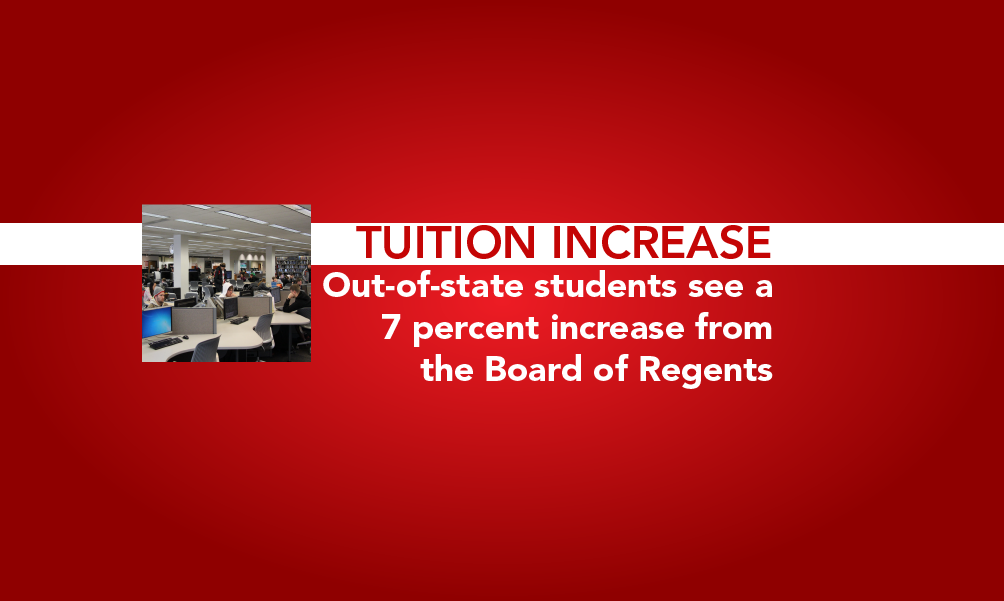
Out-of-state, in-state students see varying tuition rates
While South Dakota resident college students are breathing easier due to the finalization of the 2014-2015 tuition freeze approved by the South Dakota Board of Regents, out-of-state students will have to scrounge their wallets in order to adjust to a 7 percent increase in out-of-state tuition costs.
[notification type=”information” title=”What is a tuition freeze?”]A tuition freeze means state resident students, or students who receive reciprocity, will not pay more for tuition and fees than they did for the prior year. [/notification]
The SDBOR met April 2-3 in Madison and officially set tuition and fees for the upcoming school year, with no changes to in-state tuition and fees.
The estimated cost of tuition for a resident undergraduate student enrolling in 30 credit hours during the 2014-2015 school year is $16,154.
Nearly $4 million was appropriated by the state legislature in order to make the tuition buy down possible. The buy down alleviates some of the largest costs associated with tuition rates, such as inflation, operating expenses, faculty salary increases and health insurance costs.
Janelle Toman, director of communications for the SDBOR, said the SDBOR lobbied diligently to convey the importance of a tuition buy down to Governor Dennis Daugaard and state Legislators.
“The request to freeze tuition for resident students was the Board of Regents’ number one priority as we were putting together our budget for the upcoming fiscal year,” she said.
However, the tuition buy down was not large enough to also cover out-of-state tuition costs for students.
“It was certainly not preferable to have anyone pay increasing costs, but when we looked at the bottom line of what we were going to have to request of the Legislature to support the freeze, we were already up to $4 million to pay for the tuition buy down for resident students,” Toman said.
Sophomore Rachael Ruba, who lives in the Sioux Falls area, said the tuition freeze will help keep the costs of attending college lower. Ruba said a third of her tuition and fees costs are covered through financial aid, a third through scholarships and a third through out-of-pocket funds.
“I’m happy about the freeze for me personally, but I’m disappointed in the 7 percent increase,” she said. “I don’t think it’s fair they put the burden only on out-of-state students.”
The estimated cost of tuition for out-of-state undergraduate students enrolling in 30 credit hours during the 2014-2015 school year is $18,926.
Toman said the tuition rates the SDBOR charges are “considerably less” than what other state’s tuition rates often run for.
“Frankly, part of our decision was based on the fact that our out-of-state tuition rates are already quite affordable,” Toman said. “Reflecting on the fact that we already had a rate that was reasonable, we felt an additional minor adjustment to achieve (the tuition freeze) would not price us out of the market.”
Junior Joe Hoelker is an out-of-state student and takes out student loans to pay for all of his schooling. He said he wasn’t surprised by the legislation.
“It seems to go up every year,” Hoelker said. “It is a little bit upsetting. The real question for me is to know why this is happening to just (out-of-state students).”
The tuition freeze for in-state students and tuition increase for out-of-state students will go into effect starting with the summer term.

